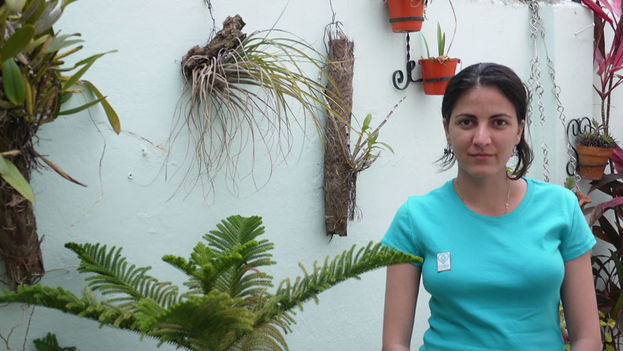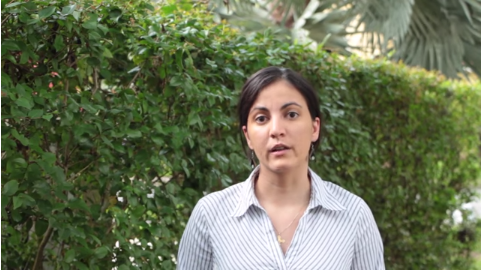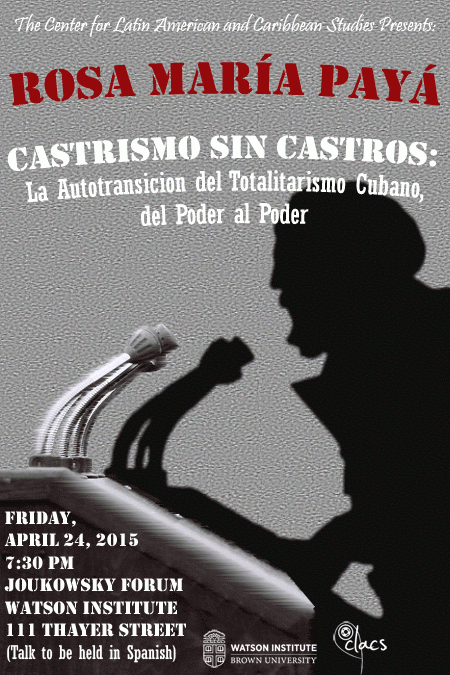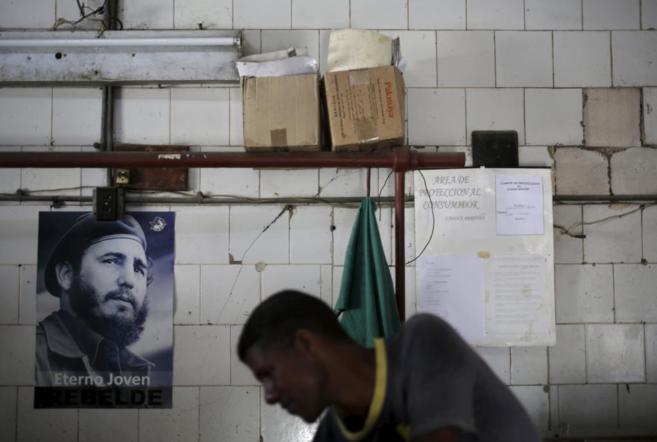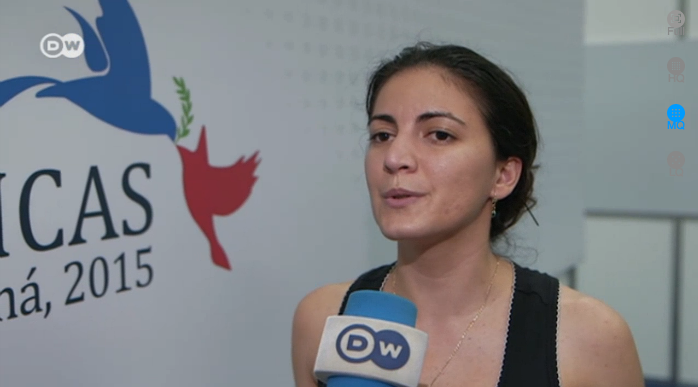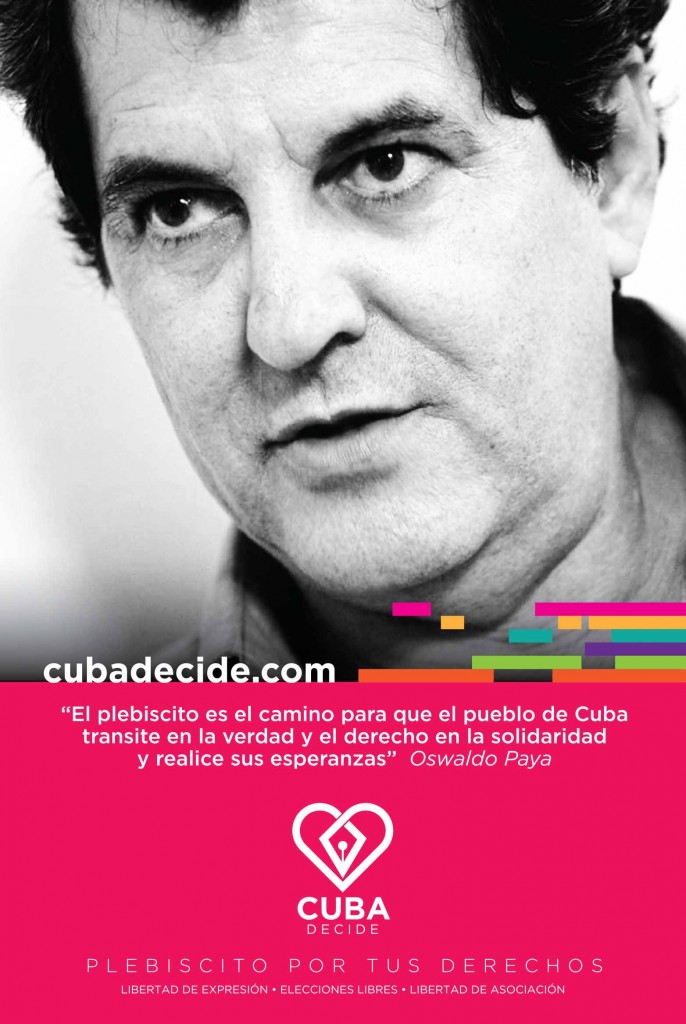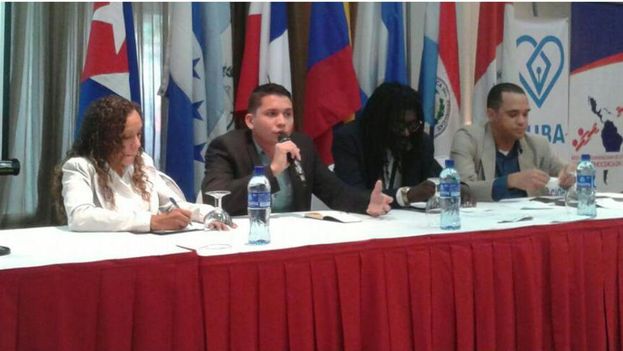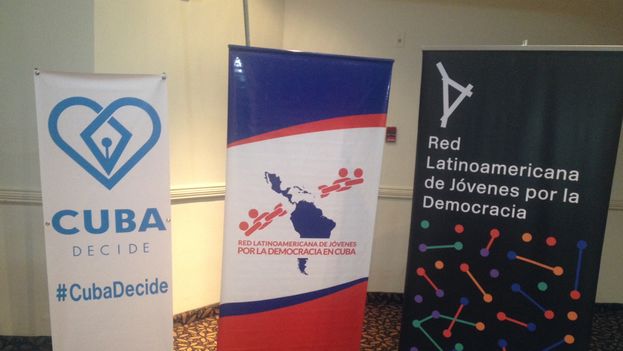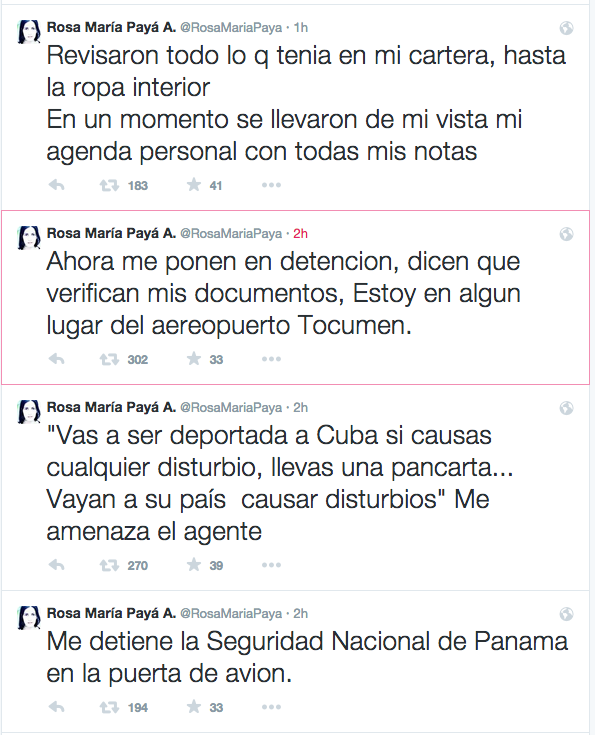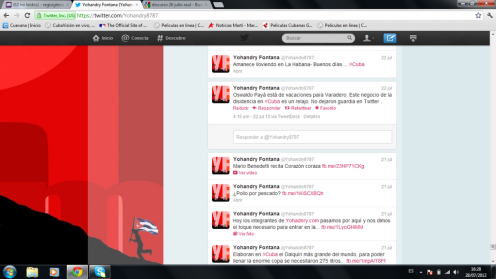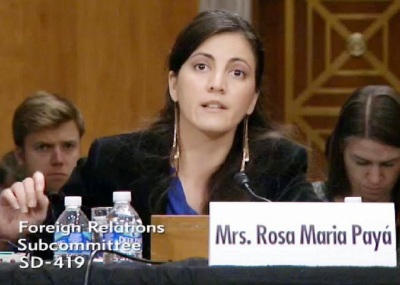We had always been persecuted, but this time they were doing it in an ostentatious way. There were also death threats over the phone, they began to spread slanders and defamations about us, they published those articles of the penal code which according to them would provide a reason to imprison us, accusing us of defamation. The situation became untenable and we decided to leave the country for the United States. Our experience was very dramatic. They ultimately killed my father and Harold and the danger was very great.
“These definitions of final departure, of living forever in one country or another, belong to the language of totalitarianism.”
This is my country and I will never stop living in Cuba. The center of my return has been to honor the memory of my father and to visit his grave. I would also like to get to Chambas in Ciego de Avila where the remains of Harold Cepero rest. If I do not do it now I will do it another time. With this I put on the table that there be an independent investigation into the death of my father, an issue that has been taken up by the Cuban democratic movement and political and intellectual personalities worldwide.
Escobar. You are now visiting Cuba. Do you have plans to return, even to stay more permanently?
Payá. Where I am visiting is the United States. I interrupted this visit to come to my own country. These definitions of final departure, of living forever in one country or another, belong to the language of totalitarianism. The Cuban government still keeps intact the power to decide whose departure is permanent and who is not allowed to return.
There are many people who cannot enter and others who cannot leave and I’m not just talking about opponents, such as the Group of 75; I’m talking about professionals who “for issues of the public interest” cannot travel, perhaps, and as one example, a doctor because he is the only neurologist in Holguin. Freedom of movement that gives the right to enter and leave the country is not guaranteed. The times I leave Cuba, the times I decide to be outside of Cuba and the government’s repression with respect to limiting my freedom of movement are situations that are real.
Escobar. During your stay in the United States you have had the opportunity to talk to many people, and even with part of the US delegation participating in the talks with the Cuban government. Have you talked to them about your demand for an independent investigation into the deaths of Oswaldo and Harold?
Payá. The Government of the United States, from the United States Congress itself, has publicly called for this independent investigation to be carried out. More recently, on the occasions that I have met with Mrs. Roberta Jacobson and at the White House with Mr. Ricardo Zuniga, I have had the opportunity to bring it up. Because if this had been previously a request to the American government, now that they are talking with the Cuban government it should also be one of the issues discussed. I have understood that the matter has been talked about, but so far I don’t know what the response of the Cuban government has been.
My father denounced “the fraud change,” this process of scrubbing its image started by the Cuban government in the face of the international community
Escobar. There is a lot of debate about whether the government’s reforms are going to lead to a transition and also a lot of debate about the validity of the conversations that were announced on 17 December. What is your opinion on all this?
Payá. My father denounced and exposed what he called “the fraud change,” referring to this process of reforms and the scrubbing of its image started by the Cuban government in the face of the international community. But without recognizing the rights of Cubans, without actually, for Cubans, substantially changing things. In fact they have barely changed except maybe for the fact that there are more paladares (private restaurants).
The wellbeing of Cubans is still not a priority and of course they continue to violate our fundamental rights. There has been an effort to change the image at the international level that has borne fruit. We are experiencing a process where it seems that the international community is very interested in including the Cuban State in the family of world nations. We have seen it with the Organization of American States, in the negotiations promoted by Obama and in the process of negotiations with the European Union.
It seems very good to us that Cuba is included, but Cuba is not the Cuban Government. The citizens remain excluded precisely because they lack a tool to participate, because they do not enjoy basic human rights.
Escobar. Cuba Decides, this project that you are now promoting, could that be this tool?
Payá. The National Assembly of People’s Power never responded to the request of thousands of Cubans presented in the Varela Project. There we asked for a referendum. Cuba Decides is a project that in some way gives the appropriate continuity to that demand, that doesn’t come from any political party nor from any organization of civil society, but from the citizenry. It is a demand that is not based in any political color, it has no partisan position.
Escobar. So Cuba Decides is not a project of the Christian Liberation Movement?
Payá. All the opposition political parties and all civil society organizations are invited to take up the campaign. I repeat: it is not from a political platform because it has no political color. We are specifically demanding that they ask Cubans if, after 67 years in which there have not been free and multi-party elections, they want a process of free, fair and multi-party elections, recognition of different political parties and access to the media. Do they want this process of free, multi-party and fair elections, yes or no?
“We demand that Cubans be asked if they want free, fair and multi-party elections, yes or no”
Escobar. Are you counting on the backing of the Christian Liberation Movement to carry out the project Cuba Decides?
Payá. My opinion is yes, but the project has no owner. If tomorrow someone goes out into the street saying “I Am Cuba Decides,” he is Cuba Decides. Anyone is Cuba Decides. The point is that we have invited many organizations to participate, we have not left anyone out, but we have not based it within any one [person or organization].
Escobar. Recently, the Government announced that it intends to adopt a new electoral law that would be in effect for the elections of 2018. Among various actors in Cuban civil society, especially in the context of the Cuban Civil Society Open Forum, there has emerged the initiative to maintain a storm of ideas so that each one adds to what we think should be in new electoral law. How do you see this initiative?
Payá. This initiative seems very good to me and I believe it complements what Cuba Decides is asking for. In fact, the Varela Project includes elements of an electoral law that is very specific on what changes there have to be in the current law to have minimally democratic and free elections. A representative part of the Cuban citizenry has already demanded those changes. It is interesting and opportune that this exercise is being done from within civil society. The Varela Project is one proposal, and there have been others, demonstrating that there is the capacity and diversity to design the country we Cubans want.
Escobar. Do you feel yourself to be a leader for the future?
Payá. The Cuban Government cannot claim to represent Cubans because it has not been democratically elected by its people. Nor have we as the opposition been elected. I do think that the opposition and civil society represent the vanguard of citizenship, but I do not want to speak for Cubans because Cubans never elected me. I have a proposal: that Cubans have a voice. I love the exercises that are being done and the proposals that are being presented. The Cuban people must get their voice back, not to begin democracy but to begin the transition. Cuba Decides is one citizen initiative and we invite everyone to participate, joining with us to demand that Cubans have the right to decide.
This would be the trigger to get to a stage in which the proposals of the Cuban Civil Society Open Forum can be presented and face the citizenry. Cuba Decides is not intended to replace other projects, nor presented as the only way. It is one step among others.
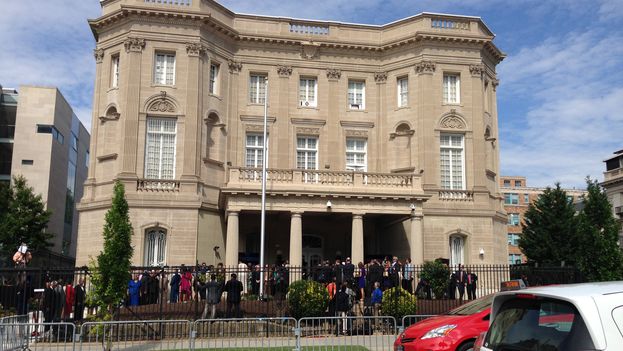
![]() 14ymedio, 20 June 2015 – This Monday, a group of protestors outside the new Cuban embassy in Washington accompanied the speech by Cuban Foreign Minister Bruno Rodriguez with shouts of “Cuba sí, Castro No”; “Freedom for Cuba”; “Democracy.” While some chanted, “Viva Cuba,” others responded, “Freedom.”
14ymedio, 20 June 2015 – This Monday, a group of protestors outside the new Cuban embassy in Washington accompanied the speech by Cuban Foreign Minister Bruno Rodriguez with shouts of “Cuba sí, Castro No”; “Freedom for Cuba”; “Democracy.” While some chanted, “Viva Cuba,” others responded, “Freedom.”

